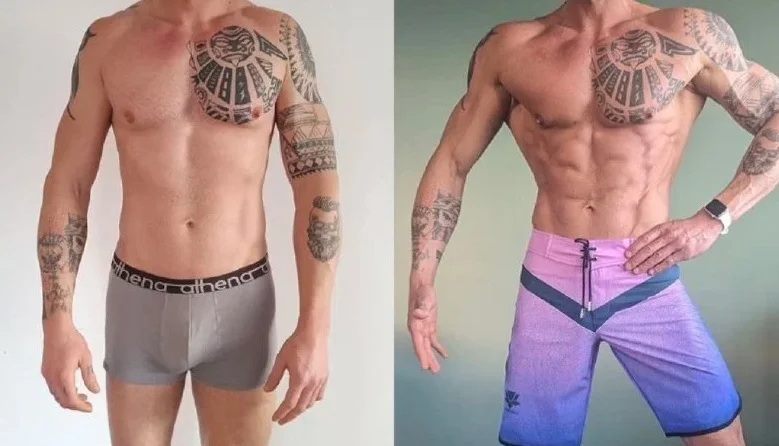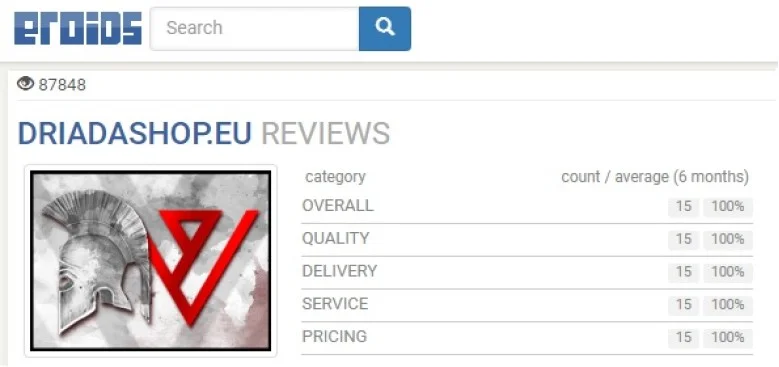
This stack is the best combination for either treating existing injuries or for rehabilitation after various surgeries.
You can also use them privately for injury prevention if you know that there is a cycle of heavy training sessions ahead of you, for example, 6 weeks before the breakdowns. The type of sport in this case does not matter, these drugs are suitable for any type of activity, from cycling to swimming, mma and bodybuilding.
Moreover, these peptides can be used in completely different cases - they are able to heal completely different human tissues, especially in combination with each other. You can treat injuries to bones, muscles, tendons, skin, bowel injuries. TB500 also has a positive effect on the heart tissue and nervous system.
This stack is a more expensive and more effective version of the previous one because it includes growth hormone. Growth hormone, as many studies have shown, is a means of positively affecting tissue growth (anabolism) and also has a great effect on the collagen structures of the body, that is, it strengthens tendons, ligaments, cartilage and bones. In addition to BPC157 and TB500, growth hormone increases the effectiveness of both drugs. As well there is confirmed scientific evidence that BPC157 increases the activity of growth hormone receptors, which makes their combined use even more profitable. Most likely, the joint intake of these drugs is the best thing for the treatment and rehabilitation after most of the various injuries that modern pharmacology can provide today. Also, PEG MGF is additionally added to this bundle - a kind of IGF-1 that affects the synthesis of muscle protein.
Recovery from injury
The purpose of this cycle is a comprehensive recovery after severe injuries, such as: fractures, ligament rup-tures, joint complications requiring surgical intervention, ruptures or even complete muscle tears, but also ba-nal micro damages that result in an inflammatory process that needs to be treated, moreover, the sooner you start doing this, the better.
For the healing of injuries, there are much more effective drugs than anabolic steroids, especially in relation to injuries of tendons and other collagenic structures. These drugs can be used regardless of your steroid cycle, that is, testosterone and other anabolic steroids are absolutely not required if you want to recover after an injury, for example, any surgery, but if you hammer steroids during the recovery period, they will be able to make this recovery faster.
If you do not want to include anabolic steroids in your injury support cycle, then you can do without them because in addition to it, there are a number of drugs that significantly accelerate recovery after trauma. These drugs in some cases, for example, with injuries to tendons and any other collagen structures, will be first-line drugs. Anabolic steroids have a significant anabolic effect on bone tissue as well as on muscle, but they have a rather weak effect on the restoration of collagen structures. Whereas such agents as growth hormone and IGF-1 (or PEG MGF), as well as TB500 and BPC157, do an excellent job with healing tendons and ligaments and can also have an effect on cartilage structures.
If you want to use preventive measures in relation to possible chronic injuries during the cycle, you simply add those drugs that will be in the main list below (BPC157/TB-500/HGH/IGF-1) individually or by combining them.
It is possible to increase the effect for tissue regeneration when TB-500 is combined with BPC157. In case of tendon injuries and bone fractures, it is better to use BPC157 in addition. This is a fairly common practice and their combination provides a pronounced synergistic regenerative effect.
TB-500
TB-500 supports the treatment of muscle, tendon and ligament injuries. Accelerates healing and reduces the intensity of inflammation. The TB-500 may be recommended in cases of acute injury where, in experience, recovery may otherwise be slow, or in cases of chronic injury where recovery simply does not occur. Types of injury for which this drug may be used include tendinitis and muscle tears or spains, as well as various types of muscle and connective tissue injuries, as well as skin lesions.
In addition, it reduces the risk of pathological adhesions and interstitial adhesions, which can interfere with tissue mobility. No less often this peptide is used for protective purposes. It has a positive effect on muscle tension, helps maintain sufficient flexibility in tendons and ligaments, and therefore may help reduce the risk of injury. TB-500 can significantly speed up the healing of superficial wounds, cuts and burns while reducing the risk of unsightly scars.
If you want to read about all the effects of this product - follow this link
https://driadashop.to/tb500-2mg
BPC-157
As we can see, TB500 has a huge potential for healing injuries of various origins. It is perfect for our purposes and, as we said above, we can enhance its effect by adding the BPC157 peptide to the cycle.
Scientists conducted numerous BPC-157 studies on animals, which showed that it has a protective effect that goes beyond the gastric and intestinal tract: BPC-157 helps with stomach ulcers, intestinal damage, such as fistulas and inflammatory diseases, healing of bones and joints, joints, joints sovereigns, as well as with injuries of organs, such as pancreas.
Current studies show that the BPC-157 affects several growth factors usually involved in angiogenesis (blood vessel growth) and other processes involved in regeneration after damage. The crucial importance of gastroprotection under the action of BPC-157 in conditions of tissue inflammation, especially in the formation of stress-induced gastric and duodenal ulcers is emphasized.
BPC-157 has shown many potential health benefits. BPC-157 promotes the healing of various injuries and wounds, demonstrating high cytoprotective activity. BPC-157 may prevent, attenuate or reverse the effects of injury, thus counteracting both arterial and venous thrombosis. BPC-157 can balance collagen synthesis and affect hepatic fibrosis in chronic liver injury.
The effects of BPC-157 also attenuate dermal, muscle, tendon and ligament fibrosis, scarring and promote function recovery. There is an evidence that BPC-157 generates NO under ex vivo conditions. BPC-157 has beneficial effects in animals with stroke, schizophrenia, depression and spinal cord injury within the gut-brain axis. In studies on rats, persistent damage to brain neurons, as well as memory and coordination impairments, were eliminated after the carotid artery occlusion experiment.
Researchers have consistently shown that BPC-157 has a huge number of beneficial effects throughout the body. Theoretically, in the early stages of infection, BPC-157 could interfere with viral replication, improve blood vessel integrity and suppress the onset of virus- induced cytokine cascades. In 2017 study has been shown to increase vascular density and accelerate blood flow recovery in ischemic muscle, indicating a stimulatory effect on angiogenesis.
If you want to read about all the effects of this product - follow this link
https://driadashop.to/bpc-157-2mg
Somatropin (Human Growth Hormone)
The third component of this bundle is growth hormone. HGH supplementation increases connective tissue collagen synthesis in human muscle and tendon, without affecting muscle myofibrillar protein syn-thesis. Thus, HGH supplementation potentially reinforces the supporting connective tissue and could make muscles and tendons less prone to injuries.
In addition to the fact that all three components have a synergistic effect, a bundle of BPC 157 and growth hormone can strengthen each other even more. There are studies that say that BPC 157-induced increase of growth hormone receptor in tendon fibroblasts may potentiate the proliferation-promoting effect of growth hormone and contribute to the healing of tendon.
The anabolic effect of somatropin is directed mainly at the connective tissues of the body, consisting of proteins different in structure than muscle proteins. Our muscles consist mostly of contractile proteins, which together form the myofibrillar apparatus. Myofibrils are able to contract and relax, which ensures our ability to move and perform any movements.
Intensive loads on the muscles (in combination with adequate nutrition) contribute to an increase in the number of myofibrils in them, thereby developing muscle growth and muscle strength. But the muscles do not transfer forces to the bones directly, but through the tendons, which must be very strong to withstand these efforts. In addition, the muscles themselves should be elastic and elastic, since under the influence of stress they stretch and contract.
The contractile proteins myosin, actin and actomyosin are responsible for the ability of muscles to contract. And the proteins collagen and elastin are responsible for the structural functions. They give the muscles elasticity and firmness.
In one study, a cycle of growth hormone use increased collagen production in the knee joint, both with and after exercise, but to a greater extent after exercise (1.3 times compared to placebo). But in the muscle tissue, collagen protein synthesis has grown several times stronger than in the tendon. The use of growth hormone in combination with exercise increased collagen synthesis by 5.8 times. The synthesis of myofibrillary protein has practically not changed, which does not directly affect the increase in muscle mass and strength, but due to the increased synthesis of collagen creates conditions under which muscles are able to grow stronger.
https://pubmed.ncbi.nlm.nih.gov/26353786/
If you want to read about all the effects of this product - follow this links
https://driadashop.to/somatropin-hgh-liquid-100iu
https://driadashop.to/somatropin-hgh-powder-100iu
PEG-MGF
Mechanical growth factor (MGF) is a type of insulin-like growth factor (IGF-1), which is formed mainly after performing physical work, increases its secretion. Mechanical growth factor causes the division of myoblasts (germ muscle cells that are dormant), and also accelerates muscle growth and recovery. The effect is similar in many ways to growth hormone, but it does not strengthen bones and cartilage.
The physiological role of MGF has been highly studied in an in vitro cell model and in an experiment on mice. Unlike IGF-1, mechanical growth factor mainly causes the division of dormant muscle cells, due to the activation of various receptors. A decrease in the synthesis of MGF is the main reason, as a result of which there is a reduction in muscle mass in dystrophic patients and the elderly.
http://www.ncbi.nlm.nih.gov/pubmed/21354439
The average daily dose of Peg-MGF is 100-200 mcg, with a frequency of 2-3 times a week.
During the training days, the drug is administered immediately after training to simulate physiological secretion as much as possible, since the natural mechanical growth factor is released by the body in response to tissue damage.
Route of administration: subcutaneously with an insulin syringe.
The main effect that you can get from this peptide is muscle growth due to hyperplasia (acceleration of cell division), hypertrophy (increase in cell volume) which will have a positive effect on the regeneration of muscle tissue in case of injuries.
If you want to read about all the effects of this product - follow this link
https://driadashop.to/peg-mgf-2mg


